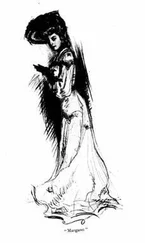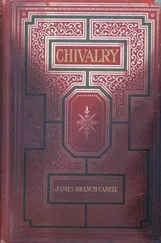James Cabell - Gallantry. Dizain des Fetes Galantes
Здесь есть возможность читать онлайн «James Cabell - Gallantry. Dizain des Fetes Galantes» весь текст электронной книги совершенно бесплатно (целиком полную версию без сокращений). В некоторых случаях можно слушать аудио, скачать через торрент в формате fb2 и присутствует краткое содержание. Жанр: Фэнтези, на английском языке. Описание произведения, (предисловие) а так же отзывы посетителей доступны на портале библиотеки ЛибКат.
- Название:Gallantry. Dizain des Fetes Galantes
- Автор:
- Жанр:
- Год:неизвестен
- ISBN:нет данных
- Рейтинг книги:5 / 5. Голосов: 1
-
Избранное:Добавить в избранное
- Отзывы:
-
Ваша оценка:
- 100
- 1
- 2
- 3
- 4
- 5
Gallantry. Dizain des Fetes Galantes: краткое содержание, описание и аннотация
Предлагаем к чтению аннотацию, описание, краткое содержание или предисловие (зависит от того, что написал сам автор книги «Gallantry. Dizain des Fetes Galantes»). Если вы не нашли необходимую информацию о книге — напишите в комментариях, мы постараемся отыскать её.
Gallantry. Dizain des Fetes Galantes — читать онлайн бесплатно полную книгу (весь текст) целиком
Ниже представлен текст книги, разбитый по страницам. Система сохранения места последней прочитанной страницы, позволяет с удобством читать онлайн бесплатно книгу «Gallantry. Dizain des Fetes Galantes», без необходимости каждый раз заново искать на чём Вы остановились. Поставьте закладку, и сможете в любой момент перейти на страницу, на которой закончили чтение.
Интервал:
Закладка:
GALLANTRY
Dizain des Fetes Galantes
By
JAMES BRANCH CABELL
WITH AN INTRODUCTION BY LOUIS UNTERMEYER
"Half in masquerade, playing the drawing-room or garden comedy of life, these persons have upon them, not less than the landscape among the accidents of which they group themselves with fittingness, a certain light that we should seek for in vain upon anything real."
TO
JAMES ROBINSON BRANCH
THIS VOLUME, SINCE IT TREATS OF GALLANTRY, IS DEDICATED, AS BOTH IN LIFE AND DEATH AN EXPONENT OF THE WORD'S HIGHEST MEANING
" A brutish man knoweth not, neither doth a fool understand this…. Shall the throne of iniquity have fellowship with Thee, which frameth mischief by a law? "
INTRODUCTION
These paragraphs, dignified by the revised edition of Gallantry and spuriously designated An Introduction, are nothing more than a series of notes and haphazard discoveries in preparation of a thesis. That thesis, if it is ever written, will bear a title something academically like The Psychogenesis of a Poet; or Cabell the Masquerader . For it is in this guise—sometimes self-declared, sometimes self-concealed, but always as the persistent visionary—that the author of some of the finest prose of our day has given us the key with which (to lapse into the jargon of verse) he has unlocked his heart.
On the technical side alone, it is easy to establish Cabell's poetic standing. There are, first of all, the quantity of original rhymes that are scattered through the dozen volumes which Cabell has latterly (and significantly) classified as Biography. Besides these interjections which do duty as mottoes, chapter-headings, tailpieces, dedications, interludes and sometimes relevant songs, there is the volume of seventy-five "adaptations" in verse, From the Hidden Way , published in 1916. Here Cabell, even in his most natural role, declines to show his face and amuses himself with a new set of masks labelled Alessandro de Medici, Antoine Riczi, Nicolas de Caen, Theodore Passerat and other fabulous minnesingers whose verses were created only in the mind of Cabell. It has pleased him to confuse others besides the erudite reviewer of the Boston Transcript by quoting the first lines of the non-existent originals in Latin, Italian, Provencal—thus making his skilful ballades, sestinas and the less mediaeval narratives part of a remarkably elaborate and altogether successful hoax.
And, as this masquerade of obscure Parnassians betrayed its creator, Cabell—impelled by some fantastic reticence—sought for more subtle makeshifts to hide the poet. The unwritten thesis, plunging abruptly into the realm of analytical psychology, will detail the steps Cabell has taken, as a result of early associative disappointments, to repress or at least to disguise, the poet in himself—and it will disclose how he has failed. It will burrow through the latest of his works and exhume his half-buried experiments in rhyme, assonance and polyphony. This part of the paper will examine Jurgen and call attention to the distorted sonnet printed as a prose soliloquy on page 97 of that exquisite and ironic volume. It will pass to the subsequent Figures of Earth and, after showing how the greater gravity of this volume is accompanied by a greater profusion of poetry per se it will unravel the scheme of Cabell's fifteen essays in what might be called contrapuntal prose. It will unscramble all the rhymes screened in Manuel's monologue beginning on page 294, quote the metrical innovations with rhymed vowels on page 60, tabulate the hexameters that leap from the solidly set paragraphs and rearrange the brilliant fooling that opens the chapter "Magic of the Image Makers." This last is in itself so felicitous a composite of verse and criticism—a passage incredibly overlooked by the most meticulous of Cabell's glossarians—that it deserves a paper for itself. For here, set down prosaically as "the unfinished Rune of the Blackbirds" are four distinct parodies—including two insidious burlesques of Browning and Swinburne—on a theme which is familiar to us to-day in les mots justes of Mother Goose. "It is," explains Freydis, after the thaumaturgists have finished, "an experimental incantation in that it is a bit of unfinished magic for which the proper words have not yet been found: but between now and a while they will be stumbled on, and then this rune will live perpetually." And thus the poet, speaking through the mouth-piece of Freydis, discourses on the power of words and, in one of Cabell's most eloquent chapters, crystallizes that high mood, presenting the case for poetry as it has been pleaded by few of her most fervid advocates.
Here the thesis will stop quoting and argue its main contention from another angle. It will consider the author in a larger and less technical sense: disclosing his characters, his settings, his plots, even the entire genealogical plan of his works, to be the design of a poet rather than a novelist. The persons of Cabell's imagination move to no haphazard strains; they create their own music. And, like a set of modulated motifs , they combine to form a richer and more sonorous pattern. With its interrelation of figures and interweaving of themes, the Cabellian "Biography" assumes the solidity and shapeliness of a fugue, a composition in which all the voices speak with equal precision and recurring clarity.
And what, the diagnostician may inquire, of the characters themselves? They are, it will be answered, motivated by pity and irony; the tolerant humor, the sympathetic and not too distant regard of their Olympian designer agitate them so sensitively that we seldom see what strings are twitched. These puppets seem to act of their own conviction—possibly because their director is careful not to have too many convictions of his own. It may have been pointed out before this that there are no undeviating villains in his masques and, as many an indignant reviewer has expostulated, few untarnished heroes. Cabell's, it will be perceived, is a frankly pagan poetry. It has no texts with which to discipline beauty; it lacks moral fervor; it pretends to no divinity of dogmatism. The image-maker is willing to let his creatures ape their living models by fluctuating between shifting conventions and contradictory ideals; he leaves to a more positive Author the dubious pleasure of drawing a daily line between vice and virtue. If Cabell pleads at all, he pleads with us not to repudiate a Villon or a Marlowe while we are reviling the imperfect man in a perfect poet. "What is man, that his welfare be considered?" questions Cabell, paraphrasing Scripture, "an ape who chatters to himself of kinship with the archangels while filthily he digs for groundnuts…. Yet do I perceive that this same man is a maimed god…. He is under penalty condemned to compute eternity with false weights and to estimate infinity with a yardstick—and he very often does it."
This, the thesis will contend, is the only possible attitude to the mingled apathy and abandon of existence—and it is, in fine, the poetic attitude. Romantic it is, without question, and I imagine Cabell would be the last to cavil at the implication. For, mocked by a contemptuous silence gnawing beneath the howling energy of life, what else is there for the poet but the search for some miracle of belief, some assurance in a world of illimitable perplexities? It is the wish to attain this dream which is more real than reality that guides the entire Cabell epos —"and it is this will that stirs in us to have the creatures of earth and the affairs of earth, not as they are, but as 'they ought to be.'"
Читать дальшеИнтервал:
Закладка:
Похожие книги на «Gallantry. Dizain des Fetes Galantes»
Представляем Вашему вниманию похожие книги на «Gallantry. Dizain des Fetes Galantes» списком для выбора. Мы отобрали схожую по названию и смыслу литературу в надежде предоставить читателям больше вариантов отыскать новые, интересные, ещё непрочитанные произведения.
Обсуждение, отзывы о книге «Gallantry. Dizain des Fetes Galantes» и просто собственные мнения читателей. Оставьте ваши комментарии, напишите, что Вы думаете о произведении, его смысле или главных героях. Укажите что конкретно понравилось, а что нет, и почему Вы так считаете.



